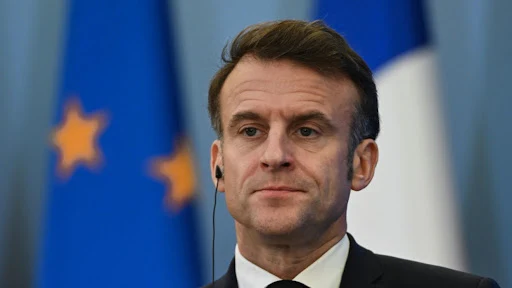French President Emmanuel Macron is preparing to spearhead a pivotal initiative at the upcoming European Union (EU) summit: the possibility of deploying EU peacekeeping troops to Ukraine if a ceasefire is reached with Russia. The ambitious proposal seeks to position the EU as a central player in the quest for stability in Eastern Europe, even as many hurdles remain in its path.
According to sources close to the French government, Macron's plan envisions an EU-led peacekeeping mission that would oversee and sustain a fragile truce between Ukraine and Russia. This initiative builds on a proposal by incoming US President Donald Trump, who has called for greater European involvement in monitoring and enforcing any potential ceasefire. Macron is expected to frame his proposal as both a security measure and a demonstration of EU solidarity in response to one of the continent's most pressing geopolitical crises.
However, the discussions remain in their infancy. EU officials have cautioned that the idea of deploying troops is premature without the achievement of a formal ceasefire agreement. The complexities of the conflict, which has been raging since 2022, mean that diplomatic breakthroughs are necessary before military deployments can even be considered.
Adding to the uncertainty is skepticism from key EU member states. Polish Prime Minister Donald Tusk, a vocal critic of Russian aggression, has dismissed any current plans for troop involvement. "There are no discussions at this stage about sending EU troops to Ukraine," Tusk stated, emphasizing the need to first secure a credible and enforceable peace agreement.
Meanwhile, Russia has reiterated its conditions for a settlement, including Ukraine’s withdrawal from contested territories and compliance with Moscow's broader military and political demands. The Kremlin continues to maintain a hardline stance, raising doubts about the feasibility of a negotiated truce in the short term.
The proposed EU peacekeeping mission could also face logistical and political challenges. The EU’s member states would need to agree on the mission's mandate, structure, and financing—a daunting task given the bloc’s often divergent interests. Some analysts warn that deploying EU troops without a comprehensive peace agreement could risk escalating tensions, rather than resolving them.
Nevertheless, Macron’s advocacy signals a broader ambition to elevate Europe’s role on the global stage. Since the conflict began, the EU has largely played a supporting role in diplomatic efforts led by the United States. Macron’s initiative, if realized, could mark a shift toward greater European autonomy in addressing international security challenges.
This development comes amid mounting calls for a renewed focus on diplomacy. Ukraine has been seeking robust international support to push back against Russian advances, while Western allies have urged restraint and a commitment to dialogue. If a ceasefire can be brokered, the deployment of peacekeeping forces could provide a framework for de-escalation and, potentially, a path toward lasting peace.
As the EU summit approaches, all eyes will be on Macron’s ability to rally support for his proposal. With the backing of key allies, including the United States, the French President could position the EU as a decisive actor in shaping the post-conflict landscape in Ukraine. But with deep divisions within the bloc and persistent resistance from Moscow, the road ahead remains fraught with challenges.
For now, the prospect of EU peacekeepers in Ukraine remains a distant goal. Yet Macron’s push underscores a critical truth: the path to peace in Ukraine will require bold, coordinated, and innovative efforts from the international community.
Tags
News

